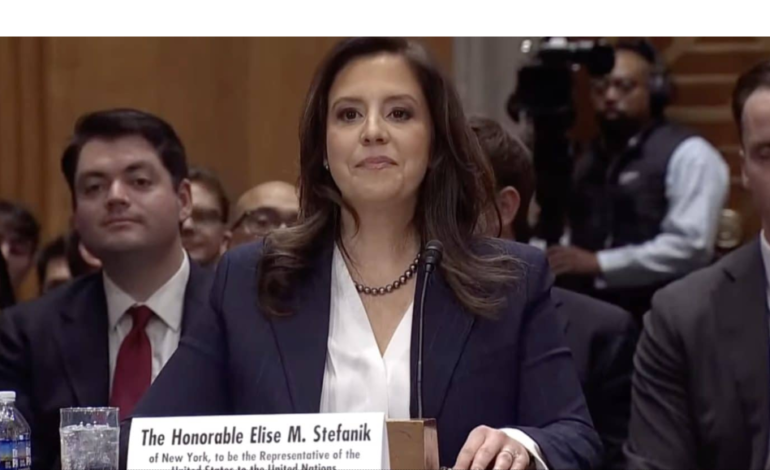
US senators, envoy nominee raise concerns over China’s rising clout at UN
US Senators and the nominee for US ambassador to the United Nations have expressed concerns over China’s increasing influence at the world body, particularly through the use of money to gain votes and efforts to place more of its nationals in key positions.
“Many senators are raising this deep concern about CCP’s [Chinese Communist Party] inroads,” said Elise Stefanik, President Donald Trump’s nominee for US Permanent Representative, a cabinet-level position, on Tuesday.
“It’s no question,” she added, “that the CCP has made strong inroads. We need to have strong American leadership working with our allies to push back on this.”
Stefanik noted that the US must make “a significant effort to try to peel off” votes in the General Assembly from China, particularly within the Global South.
This concern about China arose when Stefanik, a foreign policy hawk and former Republican member of the House of Representatives, appeared before the Senate Foreign Relations Committee for a hearing on her appointment. The Permanent Representative’s post requires Senate approval.
Stefanik emphasized that she would project Trump’s “America First” policy at the UN. When Senator Pete Ricketts raised issues of “mismanagement, corruption, rot” at the UN and the need for reforms, Stefanik agreed that the US contribution to the UN, which accounts for 22% of its budget, should be used as a “key tool for us to demand reforms and transparency.”
Trump had previously argued against China’s influence in organizations like the World Health Organization (WHO) and the Paris Climate Accord. He criticized the WHO for echoing China’s “talking points” despite the US being its largest contributor, and pointed out that the US bore a high cost under the Paris agreement while China remained a larger polluter.
Stefanik explained, “The President shared with me that he sees great promise in the United Nations if it focuses on its founding mission of international peace and security,” adding that the UN had failed in this mission and that Trump’s vision is for a reformed UN led by “strong America First, peace through strength leadership.”
Senate Committee Chair James Risch expressed concerns about the US being outvoted in the General Assembly. “When you look at these countries that are voting against us, you look and find that you have the Chinese in there spreading money, and they buy their vote,” he said.
Stefanik said the US needs a broader strategy to reach out to countries in the Global South, where China has made significant inroads. “They’ve done it by building ports, through telecom, a whole government approach,” she noted, adding that Beijing leverages these investments for votes at the UN.
Ricketts also pointed out that between 2009 and 2021, China increased the number of its nationals working at the UN by 85%. “It would be naive to think they are not driving Communist China’s agenda to the UN, whatever role they have,” he said.
Stefanik acknowledged the issue of China attempting to capture key leadership positions at UN agencies, stressing the need to run American or allied nation candidates in the election process. “We need to pay close attention to technical organizations, whether it is telecommunications, civil aviation,” she added, citing the 2020 defeat of China’s candidate to lead the World Intellectual Property Organization by a Singaporean candidate backed by the US.
Democrat Senator Brian Schatz cautioned against US withdrawal from UN agencies like WHO, stating it would only empower China. “We would be cutting off our nose to spite our face if we just go away from these international convenings because China is not going away, they are trying to run the meetings and to the extent that we withdraw.”